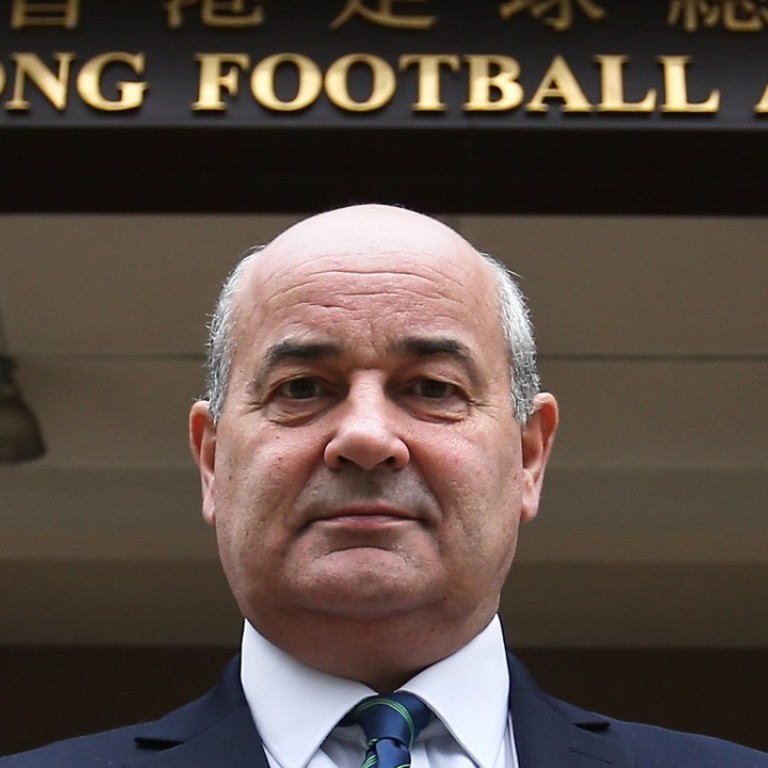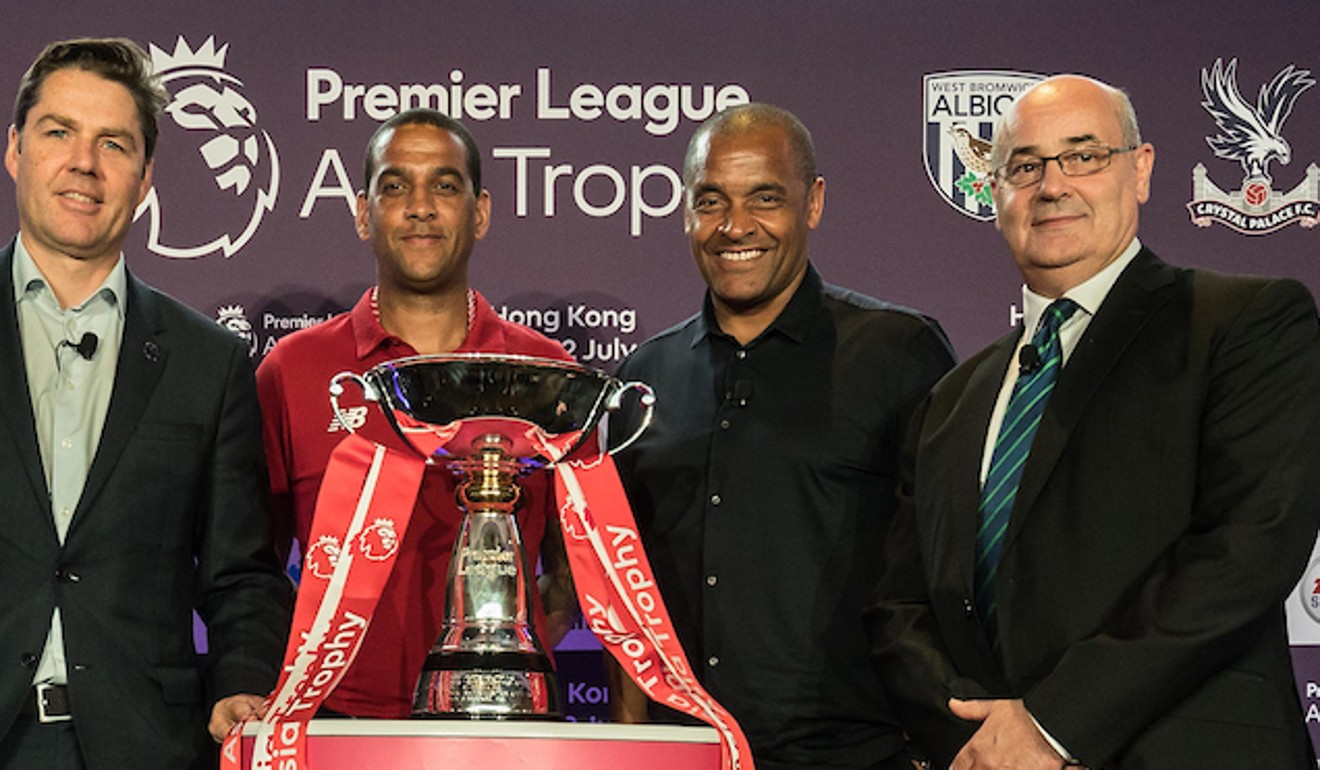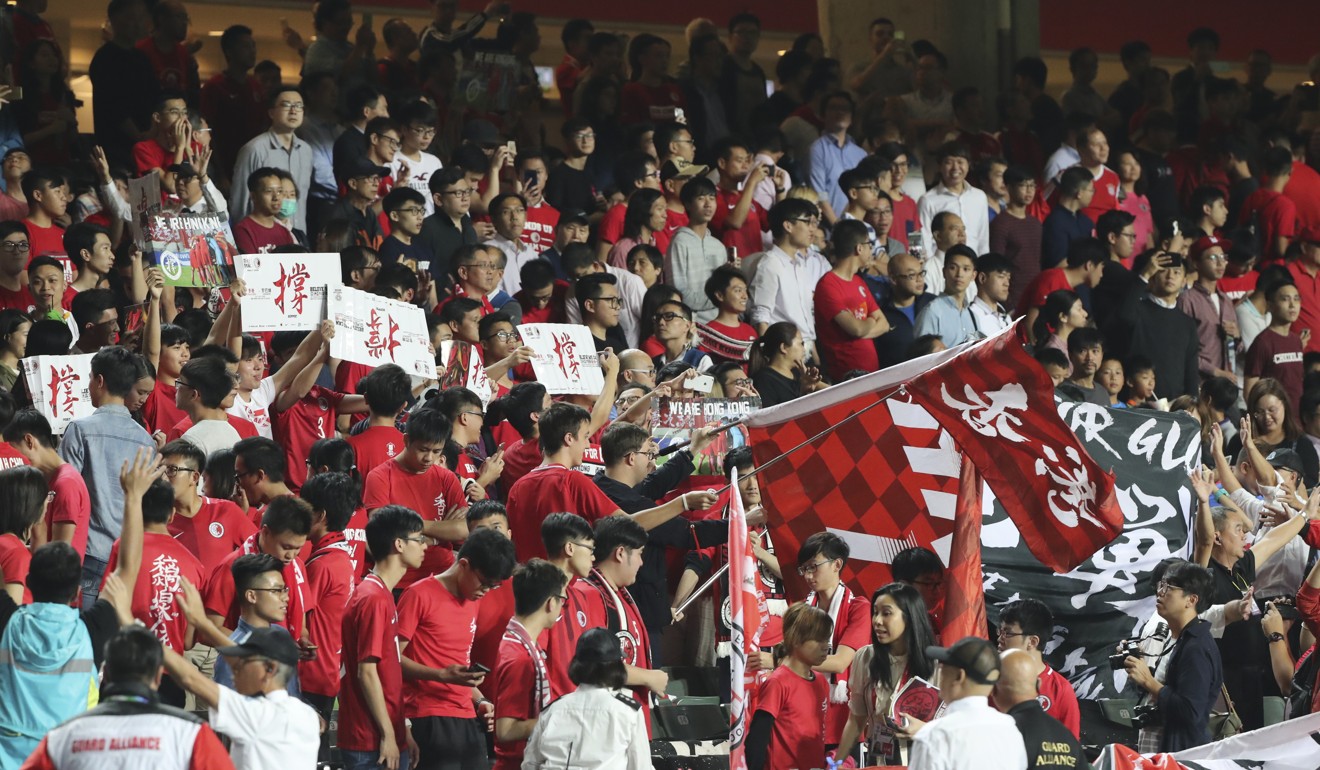
Outgoing CEO Mark Sutcliffe fears for future of Hong Kong football – and a return to dysfunctional days
Next 12 to 18 months are key for game to build on the efforts of past six years, but with no new strategic plan in sight funding could be cut off
The hard-won gains made by football in Hong Kong in the past six years are in danger of collapse, outgoing football association chief executive Mark Sutcliffe said.
“I have a big fear about what’s going to happen in the next 12 months,” said Sutcliffe, whose contract with the HKFA expired at the end of last month.
The Englishman had been in charge since 2012, taking control of the pivotal Project Phoenix restructuring and development programme and driving its successor project, Aiming High.
There were positives, too, such as the opening of the Football Training Centre, professionalisation of the HKFA and the Hong Kong Premier League, and massive investment in grass roots financed by their partners.
“Our funding runs out in March 2020, that’s the five-year funding from the government and the Jockey Club, and that accounts for 50 per cent of our revenue,” he said.

“To get the government approval from March 2020, you need to have a plan in place certainly by this time next year. The elections are in June. There’s going to be a hiatus for a few months before the elections and a few months after, so it’s really the next six months where the next plan needs to be developed, put in place and consultation carried out.
“People at the board level are going to perhaps be more worried about the elections than the strategic plan and there’s no real succession plan for me.”
The plan is for an internal interim CEO and the role advertised at the same time.
“How are they going to attract a CEO when they have no guarantee of funding beyond 2020? This hasn’t been thought through very well.
“The fact that there’s reputational issues with the FA and if people can see the FA imploding because you’ve got all of this conflict and negativity, why would you stick your neck out and give the FA a load more money?

“The government and the Jockey Club get billions of dollars from football. We get a drop in the ocean. We receive it gratefully and we spend it hopefully wisely, but it literally is a drop in the ocean from the money they’re generating from football betting.
“They’ve got the money, they’ve got the wherewithal, they could take football to the next level in Hong Kong but they are reluctant to do that because they don’t know where the money is going or who’s going to be in charge or what the plan is.”
Sutcliffe is worried the whole thing could fall apart in the next six to 18 months.
“Worst-case scenario is if those funding partners pull the plug and say, ‘You need to be self sustaining, we’re not giving you any more money’ then the FA loses 50 per cent of its revenue, which means it couldn’t afford to pay most staff and couldn’t deliver most programmes.
“When I first came here I think the turnover of the FA was about HK$30 million a year. Now it’s over $100 million because of the extra money we’ve been able to get from those funding bodies and other people. Fifa give us more money now, AFC give us more money.”
Sutcliffe said he feared shrinking funding would have a strong negative impact on areas of development that had enjoyed significant gains, such as developing the standard of play and of refereeing, as well as women’s and youth programmes.
“The things that the media, the fans, are interested in are the Hong Kong representative team and the Premier League. They’re important obviously because they are the flagship, but the most important thing is the building blocks.
“Before Project Phoenix, girls and women’s football was not even part of the remit. We integrated it as part of the recommendations and now we’ve got a massive girls and women’s programme
“That kind of thing would probably suffer first.
“The FA would probably go back to what it was before I came here, which was an almost bankrupt, dysfunctional organisation.”

